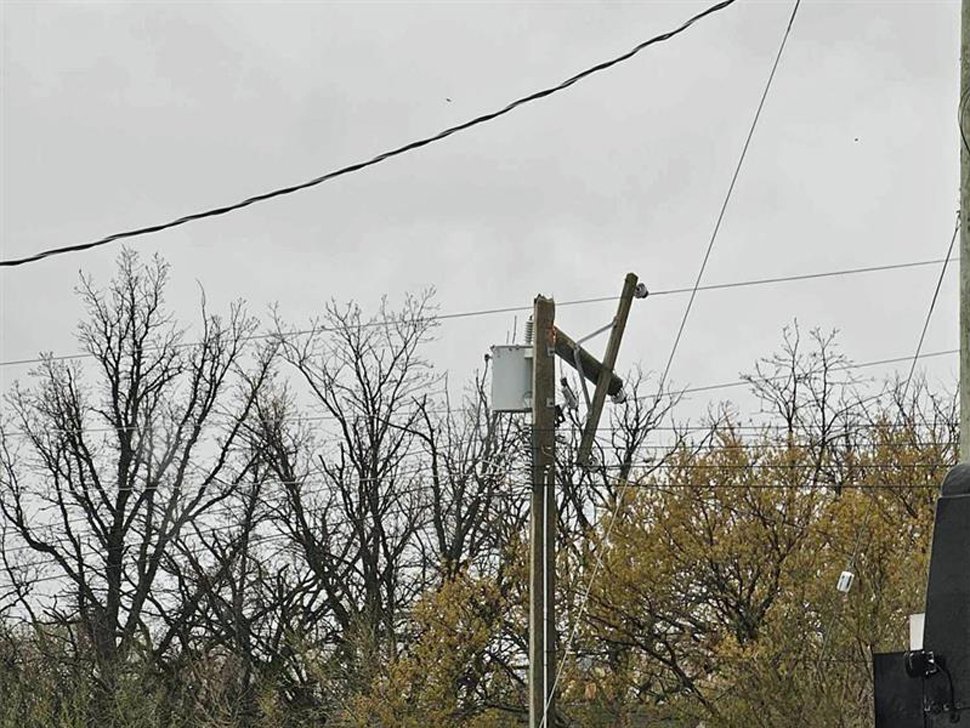Manitoba Hydro shares summer safety tips to prevent outages – SteinbachOnline.com
Manitoba Hydro is reminding customers to stay safe and informed when it comes to electricity use and power outages.
Media Relations Officer Peter Chura says that while other places may experience brownouts, when lights dim due to high power demand, this is not a common issue in Manitoba.
“We have enough capacity to serve all of our customers regardless of the situation.”
Instead, flickering lights are usually caused by mechanical issues, especially during the summer months.
“This time of the year, it’s summer, lots of leaves in the trees, lots of wind blowing, and increasingly we’re having issues with trees and vegetation encroaching upon our power lines. So, if we’re having localized power outages this time of year, quite often it’s because trees or tree branches have fallen on power lines and brought them down.”
With high winds being common in Manitoba, Chura says this type of situation is becoming more frequent. He reminds residents of safety tips.
“If you do see a line down or a tree on a line, line sparking, branches burning, just stay away, stay at least 10 meters away, call 911. We’ll get the power shut off and get that taken care of now.”
There are also steps homeowners can take to help prevent these issues.
“What property owners can do is take a look around your property. Look at your tall trees and see how close they are to power lines. Do you think it might be a problem? I can go online to hydro.mb.ca and fill out a tree safety assessment, and our crews will come, and take a look and we’ll see if it’s in immediate danger of causing a power outage or causing some damage.”
While Manitoba Hydro can assist, Chura notes the responsibility ultimately lies with the property owner.
“[They] should hire a qualified arborist to come and get it trimmed away properly so it doesn’t interfere with the power.”
Chura says if homeowners or business owners are experiencing a power outage, they can report it immediately through the Manitoba Hydro outage reporting system.
“Report the outage, that way we get that information right away, and it gets distributed to the right crews in the right places. You could also call our customer service line at 1-888-624-9376 or 1-888-MBHydro and report an outage that way.”
He also points out that some recent outages have been caused by farm equipment accidentally hitting or pulling down power lines.
“Not only causing power outages but potentially causing deadly situations for the operators of those vehicles. So go online again, if you can get a farm equipment clearance permit from hydro that will identify an approved route for you to take your equipment from field to field and make sure you’re not contacting any power lines or electrical facilities.”
That same caution applies to construction crews. Chura reminds everyone to “click before you dig.”
“You can also run into problems underground if you’re digging anything more than 15 centimetres under the ground, you’re sticking some new fence posts, you’re digging something on your property, click before you dig. Go to clickbeforeyoudigmb.com and fill in the form to make sure that the correct crews from the correct utilities are coming to check out that the ground is ok to dig in.”
Despite the extreme heat in recent months, Chura says Manitoba’s energy demand is still higher during the winter.
“Interestingly, regardless of how hot it gets in the summer in Manitoba, it’s not our busiest time in terms of demand for electricity. It’s actually in the winter when we see our peak demand loads.”
In fact, Manitoba Hydro hit a new record earlier this year.
“On January 20, 5,100 megawatts used is the highest peak load ever on our system. So by comparison, what was the highest peak in the summer? Well, that was back in 2023, and it was only 3,500 megawatts, so that’s 37% lower.”
He adds that summer provides an opportunity to generate surplus electricity and sell it on the export market to increase revenues.
With files from Judy Peters


